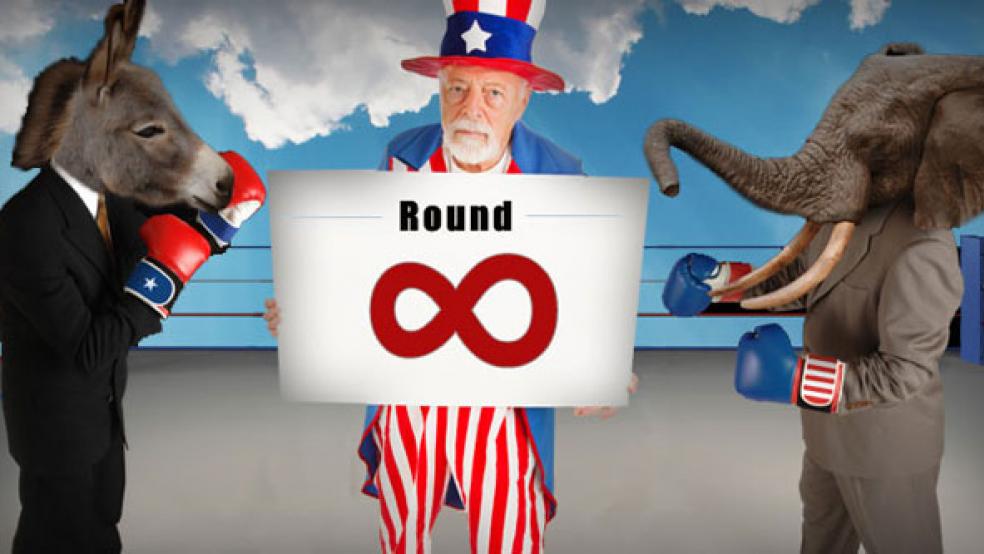The Congressional Budget Office projected last week that the deficit for the current fiscal year will rise to $960 billion, or 4.5% of gross domestic product, up from $779 billion (3.9% of GDP) last year. CBO also said that deficits will average $1.2 trillion a year between 2020 and 2029 — and that’s assuming the economy slows but doesn’t fall into a recession over that time.
An economic downturn would drive the deficit even higher. In a note to clients, JPMorgan economist Jesse Edgerton says that, based on data since 1985, a mild recession that raises unemployment by 2 percentage points might be expected to raise the deficit by 3.6% of GDP as the result of automatic stabilizers and stimulus costs. That would lift the deficit to about 8% of GDP, which Edgerton notes is “very high by historical standards, although still below the 9.8% peak seen in 2009.”
Running deficits that large, even in response to a recession, would likely meet with some political resistance. “Projections like this would spark debate about the wisdom of providing stimulus, drawing comparisons to the struggles of highly-indebted European nations like Greece and Spain earlier this decade. Some would argue that the United States does not have the ‘fiscal space’ to provide stimulus when deficits and debt are already so high,” Edgerton writes.
But the economist says that those question of fiscal space wouldn’t necessarily be the most critical issue, arguing that “there is no bright line level of deficits or debt” that would limit a response to a possible recession. On the flip side, “[a]lthough it would not be entirely free of risk, there would be compelling arguments for the federal government to borrow money to provide stimulus, especially in a world of low interest rates and inflation that would likely coincide with a recession.”
Similarly, Gregory Daco, chief U.S. economist at Oxford Economics, told S&P Global Market Intelligence that high debt levels shouldn’t be a concern: “In a sense, you don't have to worry about fiscal space in the U.S. and certainly not worry about fiscal space in the case of an economic downturn," he said.
Rather than “fiscal space,” Edgerton argues, the big questions around a potential fiscal stimulus would be political ones: Would deficit hawks support a stimulus package? Would Democrats support one if it’s seen as benefitting President Trump? And could a divided Congress agree on the elements of a stimulus plan?
Edgerton points back to 2008, when 216 Democrats and 165 Republicans in the House passed the $152 billion Economic Stimulus Act, which was signed into law by President George W. Bush nine months before the 2008 election. “While such bipartisan cooperation may seem quaintly charming today,” Edgerton says, “it nonetheless failed to prevent the 2008 recession.”
That cooperation came as the economy was in the midst of the Great Recession. A milder downturn might not see the same bipartisanship, especially given how the political landscape has changed over the last decade. "If it's just kind of a run-of-the-mill couple quarters of contraction that's mild and short, then I don't think that policymakers will be galvanized to reach across the aisle and come up with something big," Megan Greene, a senior fellow at the Mossavar-Rahmani Center for Business and Government at Harvard University, told S&P. "If it's another financial crisis, which I don't expect at all, then I think policymakers would be more likely to do something."
Douglas Holtz-Eakin, a Republican economist and former CBO director who now leads the American Action Forum, a conservative think tank, had a take that was both more optimistic and more cynical: "In a downturn, I'm pretty sure [lawmakers] all panic. Their collective jobs are at stake," he told S&P. "They will then spend money, probably more of it and more inefficiently than otherwise we would need to."





